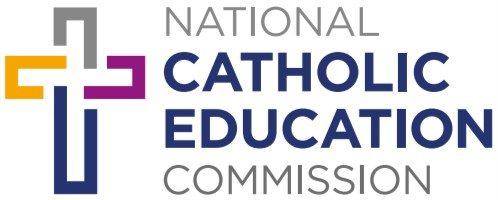9 February 2022
In a joint partnership between Australian Catholic University (ACU) and the National
Catholic Education Commission (NCEC), teacher education students will be employed in
NSW Catholic schools as paraprofessionals to address the growing shortage of teachers and
provide paid, in-the-classroom experience.
The plan will not only address the short-term challenges posed by COVID-19, it is part of a
long-term strategy to place highly trained, workplace-ready graduates into Australian
Catholic schools and early childhood education centres.
From this week, paraprofessionals will be employed as Education or Learning Support
Officers, joining the workforce in NSW Catholic schools that are challenged by the ongoing
COVID-19 pandemic. Other states and territories across Australia are expected to join the
program as part of a national roll out.
Teacher education students, who have already undertaken substantial in-school
professional experience, will be directly involved in supporting teachers in the classroom
and those working remotely. This will support the continued delivery of high-quality
learning and teaching in our schools.
The paraprofessionals will be employed up to four days per week with in-school mentoring
and support from ACU. This flexibility ensures they have time to complete their university
studies and to meet the requirements of their final professional experience so they can
graduate and join the workforce.
Photo/on-camera interview opportunity:
St Clare’s Catholic High School, Hassall Grove (Western Sydney) has employed five ACU pre-service teachers as paraprofessionals commencing this week.
Available for interview: ACU and NCEC spokespeople, School Principal and
Paraprofessional.
Comment
Australian Catholic University (ACU) Vice-Chancellor and President Zlatko Skrbis
“As the largest provider of teachers in the country we have a responsibility to the teaching
profession, in times of uncertainty and challenge, to assist in any way we can. Our
preservice teachers engage in rigorous teacher education programs and have already spent
a significant amount of time in schools where they are mentored by high-quality teachers.
We see this as an opportunity to add breadth and depth to their experience whilst helping
the profession meet current workforce needs and prepare adequately for upcoming
demand.”
National Catholic Education Executive Director Jacinta Collins
“We are developing a long-term strategy to build teacher capacity and address the teaching
workforce needs of Catholic schools, particularly in rural, regional and remote areas. This is
an exciting partnership that enables teaching students to find employment and extend their
experience in Catholic schools where they are most needed. Supported by mentors, school
and tertiary professional learning, this initiative will provide the opportunity of paid
teaching experience.”
School Principal: Kevin Jones, St Clare’s Catholic College, Hassall Grove
“At St Clare’s we are acutely aware that the experience undergraduate teachers gain in
schools is invaluable. We believe the role of paraprofessionals in Catholic schools will
benefit these young aspiring teachers, the experienced teachers they work with, our
students and the community as a whole. Their work will be a tremendous support to hard
working professionals both in the learning spaces and in terms of preparation, resourcing
and organisation. We are very excited about the possibilities.”
Q&A
Will the paraprofessionals be paid for their placements?
Yes. Paraprofessionals are usually classified the same as Education or Learning Support Officer.
What will the paraprofessionals be doing at schools?
Supporting teachers and students in the classroom including marking and providing
feedback to students, collecting evidence of learning, creating resources, supervising
practical lessons, personalising learning materials and digitising resources for student needs
and playground supervision.
Does this mean that some students may be taught by yet-to-be qualified teachers?
No, because they are engaging in a paraprofessional capacity in a support role for teachers.
This is an opportunity for pre-service teachers to be mentored by professional teachers in
the classroom.
How many teacher education students will be going into schools?
This is in the early stages and we are still calling for expressions of interest. There has been
strong interest from pre-service teachers. The number of placements will be determined by
the needs of schools. For example, St Clare’s Catholic College, Hassall Grove has already employed five paraprofessionals. Over the longer term, we anticipate this will be a wellsupported and continuing program.
ACU is a national university with campuses in Sydney, Brisbane, Melbourne, Ballarat,
Canberra, and through ACU Online. It provides undergraduate and postgraduate courses to
train pre-service teachers and early childhood carers, as well as other degrees in education
and arts, health sciences, law and business, and theology and philosophy.
NCEC is the peak body for Catholic Education in Australia and is responsible for the national
coordination and representation of Catholic schools and school authorities. There are 1,755
Catholic schools across the nation, educating over 777,000 or one in five Australian students
and employing over 100,000 teachers and staff.
Media contacts:
ACU: Jen Rosenberg, National Strategic Communications Manager, 0407 845 634
NCEC: Media and Communications Officer 0407 408 177
